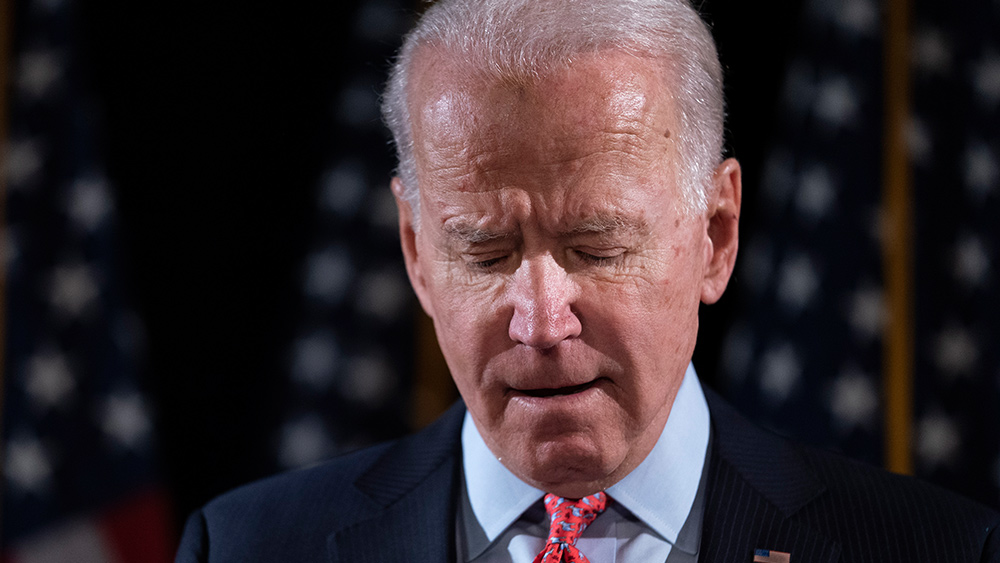Regal Cinemas suspending operations due to the coronavirus lockdowns

(Natural News) America’s second-largest cinema chain is closing all of its locations nationwide after having reopened in August. The closure comes after a cascade of postponements of big-budget Hollywood films due to the ongoing Wuhan coronavirus (COVID-19) pandemic.
Regal Cinemas announced that they will be suspending operations at their more than 500 locations on Thursday, Oct. 8. The suspension comes at the behest of Regal’s owners, the Cineworld Group, which is also similarly suspending operations in its 127 Cineworld and Picturehouse cinemas in the U.K.
Second-largest cinema operator closing its doors once again
Cineworld, the second-largest cinema chain in the world and the U.S., said that it was forced to close due to studios’ reluctance to push ahead with major releases.
“We are like a grocery shop that doesn’t have vegetables, fruit, meat,” said Cineworld CEO Mooky Greidinger. “We cannot operate for a long time without a product.”
The latest major release to be delayed was the upcoming James Bond film, “No Time to Die.” MGM has delayed once again to April of 2021 after initially delaying it to November from its original April 2020 release date. Other high-profile delays include Warner Bros’. “Wonder Woman 1984,” which has been moved to Christmas day, and Marvel’s highly anticipated “Black Widow” which has also been delayed to May of 2021.
Meanwhile, other studios have decided to bypass theaters altogether, releasing a number of high profile films, such as Disney’s live-action remake of “Mulan” directly onto digital platforms. (Related: 8 GREAT ideas for healthy home entertainment during the coronavirus lockdown.)
At the same time, some films which have seen theatrical releases during this time have underperformed. The highly-anticipated Christopher Nolan film “Tenet” – the film which many theaters were hinging their reopenings on – grossed just $45 million in the U.S. and Canada after it was released in late July. With the film having been made on a budget of $200 million, its underperformance has seemingly scared off studios and distributors from releasing films at this time.
As such, the months ahead are looking bleak for cinema operators such as Cineworld.
“Without these new releases, Cineworld cannot provide customers in both the U.S. and the UK … with the breadth of strong commercial films necessary for them to consider coming back to theaters,” the company stated.
Other cinema operators have shared Cineworld’s sentiments. Tim Richards, founder and CEO of rival cinema operator Vue International told BBC Radio: “Our problem right now is we have no movies, and this was a big blow for us.”
Large cinema operators may survive, but smaller ones could close for good
While suspending operations will affect Cineworld’s earnings, doing so might be less costly than staying open with a limited supply of movies and little consumer demand.
Last month, the company, which is already shouldering a heavy debt load, released dismal mid-year financial results. Cineworld reported that its revenue fell nearly 70 percent to 712.4 million in the six months ending on June 30 compared to the same period last year.
Vue’s Richards agrees, saying that large operators such as Cineworld and Vue can take the losses from suspending operations and are “likely going to make it through.” The same may not be the case, however, for smaller cinema operators.
“I’m concerned about the independents and the small regional operators right now that are going to really struggle, and when they close, they may not reopen,” Richard stated.
The National Association of Theatre Owners also shared the same bleak outlook.
“If the status quo continues, 69 percent of small and midsize movie theater companies will be forced to file for bankruptcy or to close permanently,” it said in a statement.
The effects seem to be more pronounced in the U.S., where box office receipts have been lower than those abroad. For example, despite its tepid reaction in the U.S., “Tenet” did well enough to recoup its production costs in foreign markets.
The poor local performance has been partially blamed on how theaters in major U.S. markets such as New York City and Los Angeles have yet to reopen, even as other establishments, such as restaurants and churches, have.
In New York, Gov. Andrew Cuomo has addressed this, arguing that movie theaters weren’t high on the list of businesses that should be allowed to open.
“It’s one ventilation system. You’re seated there for a long period of time … This is a risky situation,” he said.
With state governments taking this position, it looks like smaller cinema operators may soon have to suspend their operations as well. Unlike with Cineworld, however, for these operators, the closures might be permanent.
For more on the economic effects of the coronavirus on the entertainment industry, follow Pandemic.news.
Sources include:



